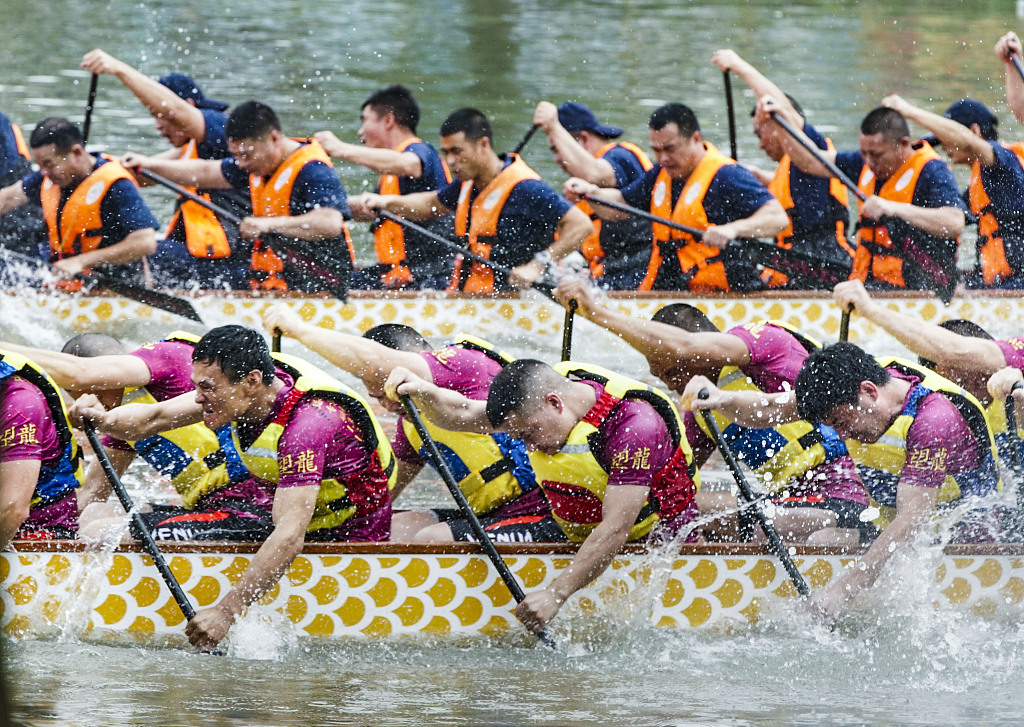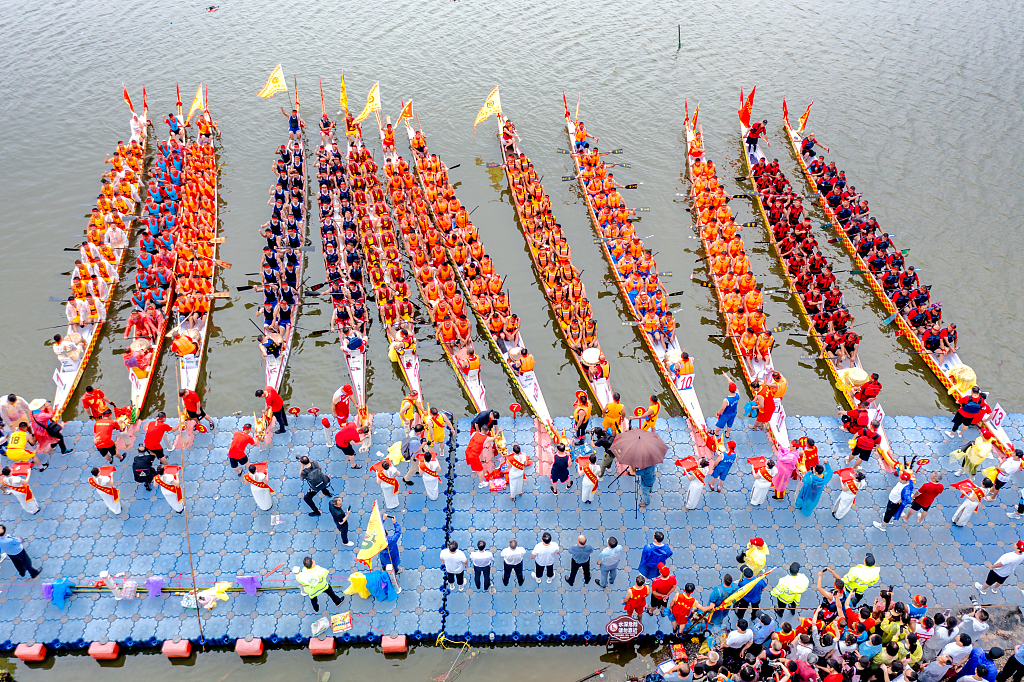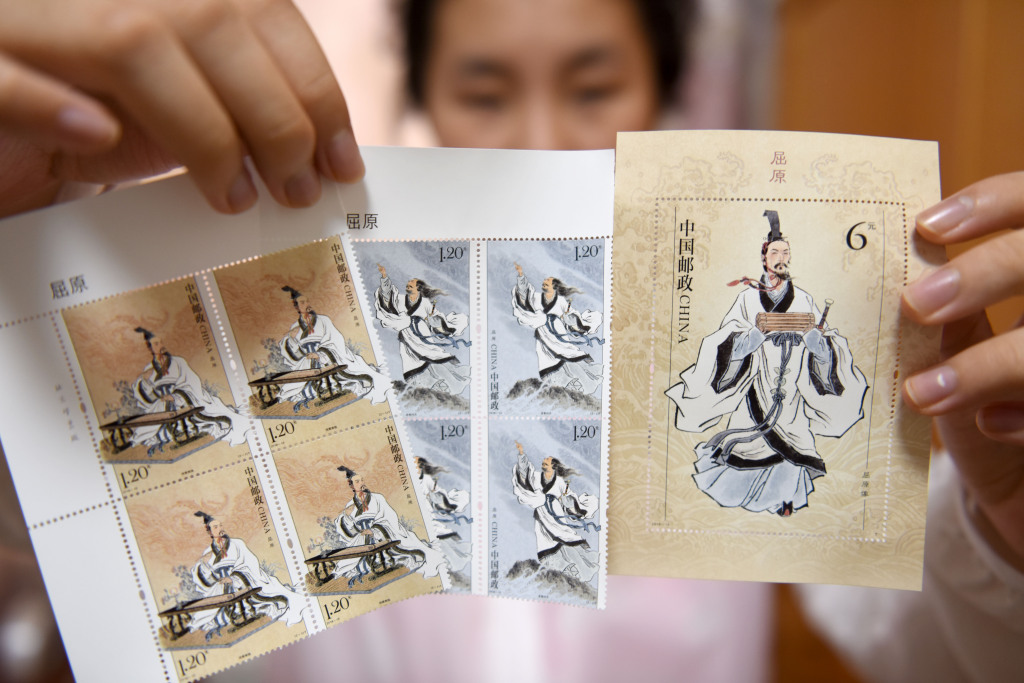
A file photo shows a competitive dragon boat race. Valuing cooperation, speed, skills, and tactics, the activity demonstrates solidarity and hard work, a universal spirit of sports. /CFP
A file photo shows a competitive dragon boat race. Valuing cooperation, speed, skills, and tactics, the activity demonstrates solidarity and hard work, a universal spirit of sports. /CFP
As an ancient Chinese activity, dragon boat racing can be traced back more than 2,000 years.
It is an indivisible part of celebrations of the Duanwu Festival, also known as the Dragon Boat Festival, which occurs on the fifth day of the fifth month of the traditional Chinese calendar.
There are multiple theories about the origin of dragon boat racing. One of the most popular theories attributes it to having originated among the fishing communities along the Yangtze River in southern-central China.

A file photo shows a competitive dragon boat race. Valuing cooperation, speed, skills, and tactics, the activity demonstrates solidarity and hard work, a universal spirit of sports. /CFP
A file photo shows a competitive dragon boat race. Valuing cooperation, speed, skills, and tactics, the activity demonstrates solidarity and hard work, a universal spirit of sports. /CFP
It was initially a folk ritual designed to pray to the rain gods for rainfall and a bumper harvest but was later associated with the death of Qu Yuan (C. 340 – 278 BC).
Qu Yuan is known for his patriotism and his poetry and verses. He was a poet and high-ranking politician of the Warring States Period (475-221 BC) who was exiled from his state by a corrupt king.

China Post publishes a set of stamps in 2018 commemorating Qu Yuan in his hometown, Zigui County in Central China's Hubei Province, during the Duanwu Festival holiday. /CFP
China Post publishes a set of stamps in 2018 commemorating Qu Yuan in his hometown, Zigui County in Central China's Hubei Province, during the Duanwu Festival holiday. /CFP
When he heard that his court had been destroyed by enemies, he drowned himself out of sorrow in the Miluo River. One of the popular legends has it that villagers raced their boats in the river to try to rescue his body and threw zongzi (sticky rice dumplings) into the water to prevent fish from eating his corpse, but they were unable to find him.
Dragon boat racing has evolved throughout the years, and become a traditional watercraft activity and was later popularized internationally through the Olympic Games and many sports enthusiasts across the globe. And the legend of Qu Yuan has become a well-known story in China and other Asian countries.